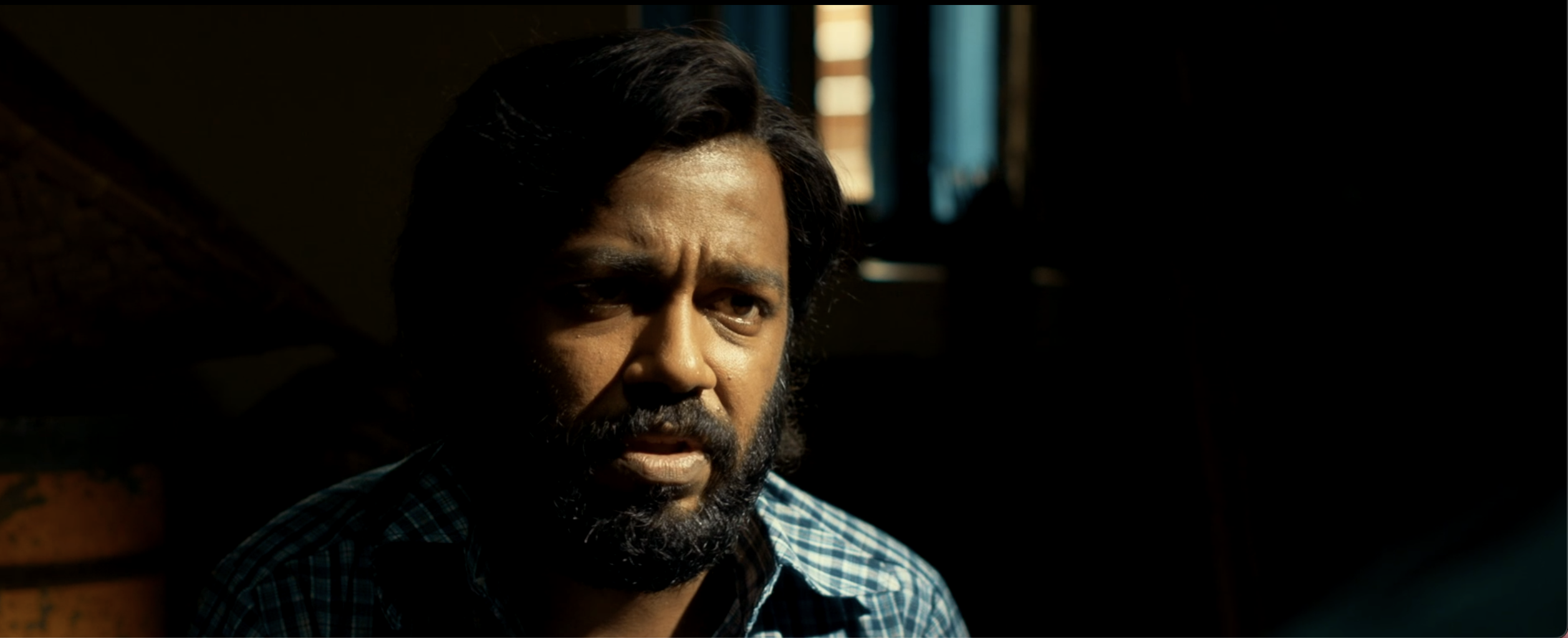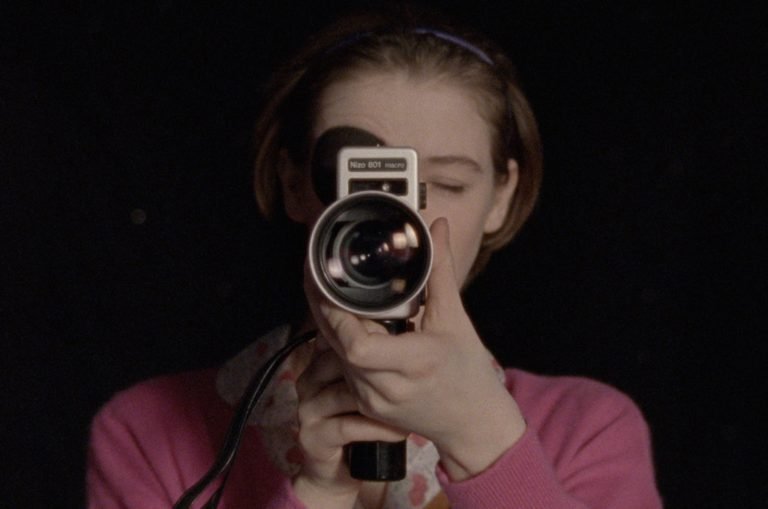Malayalam filmmaker VC Abhilash’s second directorial venture, “Sabaash Chandrabose” (2022), follows an impulsive protagonist who cannot stop himself from getting in between things. The film begins with a telltale of Chandra Bose, the protagonist played by Vishnu Unnikrishnan, narrated by his mother. His mother tells us the boy is a magnet for trouble. His impulsiveness has always landed him in a pit. We are then introduced to 1980s Nedumangad, where we find Chandra Bose leading his girlfriend (Sneha Palliyeri) out of her house. Her father has vowed against marriage between the two, and Bose’s reaction to the situation is a public elopement.
The arrival of Manoharan (Irshad) from the Gulf disrupts the momentum of the Bose’s action, and his elopement fails. In the moments that follow, the cinematography combined with the music is pure bliss; VC Abhilash is able to beautifully craft a love story, aided by the music of Sreenath Sivasankaran with a pinch of melancholy. This aspect of the story is narrated without a single dialogue, and you can’t help but feel deeply for these star-crossed lovers. However, this is not the premise of the film.
In the 1980s, TV served as a center of socialization in India. People, irrespective of their social status, gather around the house with a TV for the evening. This is not a vibrant gathering; most, if not all, have their eyes fixated on the television. But it is similar to the gathering when a storyteller is in town or when a circus troupe visits. There is decorum, and consequently, there is silence. We are introduced to Yathindran (Johny Antony), the owner of a wonderful Black-and-White Television. Bose and Yathindran are like family, and within a few scenes, we get glimpses of who they are. One is impulsive, and the other is innocent, but they end up at the same destination: mischief.
About the halfway mark, Chandra Bose inflates a trivial issue (in alignment with his character), leading to an explosive argument. The circumstances are not extraordinary; Yatindran’s father-in-law has just passed, and people from the village have gathered for the funeral. The TV is switched off. In an effort to quench his boredom, Bose’s nephew switches the TV on during the funeral processions. The scene is undoubtedly funny. As a result, Yatindran’s wife, Pramila (Remya Suresh), raises her hand on Bose’s nephew. The action isn’t justified, but before you know it, the whole thing blows up into a casteist, classist act.
There are references to hierarchy and discrimination here, but they are not well-founded. Bose arrives late to the scene and soon launches into an emotional monologue. The impulsiveness takes center stage, and the reasons he finds are concocted and pointless. It finds its fruition in a grand challenge: Bose promises to buy a bigger and better color TV (as opposed to Yatindran’s B&W) to best him. This is the film’s premise. Chandra Bose is not a hardworking or well-reputed man. He is not responsible, is severely in debt, and his decision-making skills are subpar at best. But his pride cannot be compromised.

From here onwards, the story is predictable: a destitute Bose tries his luck at buying the television only to fail and eventually settle on theft. The film includes heist-like sequences and an eventual reconciliation between Bose and Yatindran. Thematically, there is uncompromising pride, impulsivity, and general myopia when it comes to the reality of situations. Here’s an example: navigating troubled waters, Bose promises his disheartened girlfriend to make it to her dance performance. This is a significant promise, one that their relationship depends upon. But Bose defaults callously. We are left with a teary-eyed girlfriend in love with a man who cannot even show up to her performance.
Perhaps a shortcoming of Chandra Bose, played by Vishnu Unnikrishnan, is that the character lacks qualities beyond his impulsivity. He is a single-faceted character with little to offer. One can resonate with this impulsivity, but it is rare that we find such people in life. The lack of complexity in his personality serves as a deterrent to the story at times. His personality undoubtedly exposes a stunted masculinity that seeks to toot its own horn. Perhaps in some other setting, this could have been examined. But this film chooses to focus on the comedy of it all.
Jaffer Idukki’s Ganjar, however, is complex. Ganjar owns the factory that Bose works for. Within his limited screentime, Jaffer is able to establish Ganjar’s persona deeply within the minds of the viewers. He’s a peeping tom meets capitalist landlord combination, a melange of power and creepiness with a particular hatred towards the red flag. Johny Antony’s Yatindran undisputedly offers a standout performance. Yatindran is witty and conflict-avoiding in the warmest manner possible. His innocence lands him in trouble, similar to the characters played by the late veteran actor Innocent, but Antony is able to bring his own flavor and quirkiness to the mix. Yatindran serves as an incredible comic relief to this simple story of impulsivity and its consequences.
Overall, the premise is firm, the characters are plentiful, and the comedy is solid. Some aspects of the film are undercooked; some subplots, including that of Bose’s love story, do not find a conclusion. Despite having a strong persona, Ganjar does not have much to offer to the story. A bit of screen time for the romantic duo and Ganjar would have enriched the film, adding more layers to its narrative.
“Sabaaash Chandrabose” is no groundbreaking film, but not all films have to be. A good film may succeed in making you think, but this is rarely the sole criterion. Films that make you laugh, escape to a different land, and bring you back with a smile on your face are exemplary films, too, and it is perhaps what this film does best: Take you to a land of the past, indulge in some good music and comedy, and bring you back without stressing you too much. For all this reason, “Sabaash Chandrabose” is an excellent watch.

![Who Will Start Another Fire [2021] Review: A Mixed Bag with Powerful Surprises And Incredible Messaging](https://79468c92.delivery.rocketcdn.me/wp-content/uploads/2021/06/NotBlackEnough-768x432.jpg)




